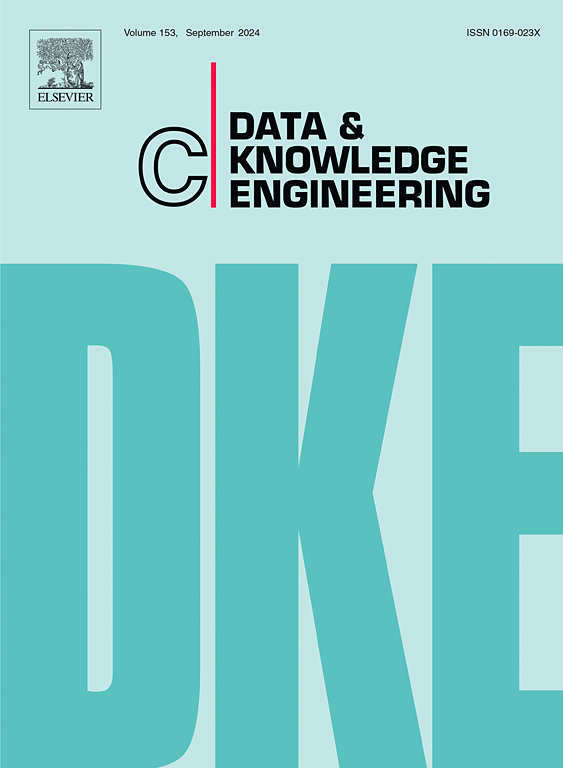Modelling and solving industrial production tasks as planning-scheduling tasks
IF 2.7
3区 计算机科学
Q3 COMPUTER SCIENCE, ARTIFICIAL INTELLIGENCE
引用次数: 0
Abstract
Industrial production planning or manufacturing concerns the selection of activities that can produce a desired product and scheduling them on resources that perform these activities. To deal with such problems techniques in the fields of Automated Planning and Scheduling might be leveraged, which are usually pursued separately even though they are (very) complementary. In manufacturing, the activities represent elementary steps in the production and each activity requires a specific input in order to produce a desired output. From that perspective, activities resemble actions in planning as they can capture such a requirement. Selecting proper activities including their (partial) ordering can be understood as a planning task while allocating the activities to the resources can be understood as a scheduling task.
This paper formalises the concept of “combined” planning and scheduling tasks by defining planning-scheduling tasks that are suitable for problems concerning industrial production or manufacturing. In particular, we define two types of activities – production and maintenance activities – where the former describes elementary production tasks while the latter modifies attributes of the resources (e.g. changing the configuration of reconfigurable machines). We introduce an extension of Planning Domain Definition Language (PDDL), a well-known language for describing planning tasks, to support modelling of planning-scheduling tasks. To tackle planning-scheduling tasks we propose two compilation schemes, one into temporal planning (in PDDL 2.1) and one into classical planning. We evaluated our approaches in three use cases of industrial production planning — Reconfigurable Machines, Woodworking, and Tube Factory domains. The results showed that solving planning-scheduling tasks by compiling them into planning tasks in order to use off-the-shelf planning engines is suitable as it scales reasonably well with the size of the actual tasks (although the resulting solutions are suboptimal).
将工业生产任务建模并求解为计划调度任务
工业生产计划或制造涉及到能够生产所需产品的活动的选择,并在执行这些活动的资源上对它们进行调度。为了处理这些问题,可以利用自动化计划和调度领域的技术,尽管它们(非常)互补,但通常是分开进行的。在制造业中,活动代表了生产的基本步骤,每个活动都需要特定的投入才能产生期望的输出。从这个角度来看,活动类似于计划中的行动,因为它们可以捕获这样的需求。选择适当的活动(包括它们的(部分)排序)可以理解为计划任务,而将活动分配给资源可以理解为调度任务。本文通过定义适合于工业生产或制造业问题的计划-调度任务,形式化了“组合”计划和调度任务的概念。特别是,我们定义了两种类型的活动——生产和维护活动——前者描述基本的生产任务,而后者修改资源的属性(例如,更改可重构机器的配置)。我们引入了规划领域定义语言(PDDL)的扩展,以支持规划-调度任务的建模。PDDL是一种描述规划任务的知名语言。为了解决计划-调度任务,我们提出了两种编译方案,一种是时间规划(PDDL 2.1),另一种是经典规划。我们在工业生产计划的三个用例中评估了我们的方法-可重构机器,木工和管工厂领域。结果表明,为了使用现成的计划引擎,通过将计划-调度任务编译成计划任务来解决计划-调度任务是合适的,因为它可以很好地随实际任务的大小扩展(尽管最终的解决方案不是最优的)。
本文章由计算机程序翻译,如有差异,请以英文原文为准。
求助全文
约1分钟内获得全文
求助全文
来源期刊

Data & Knowledge Engineering
工程技术-计算机:人工智能
CiteScore
5.00
自引率
0.00%
发文量
66
审稿时长
6 months
期刊介绍:
Data & Knowledge Engineering (DKE) stimulates the exchange of ideas and interaction between these two related fields of interest. DKE reaches a world-wide audience of researchers, designers, managers and users. The major aim of the journal is to identify, investigate and analyze the underlying principles in the design and effective use of these systems.
 求助内容:
求助内容: 应助结果提醒方式:
应助结果提醒方式:


